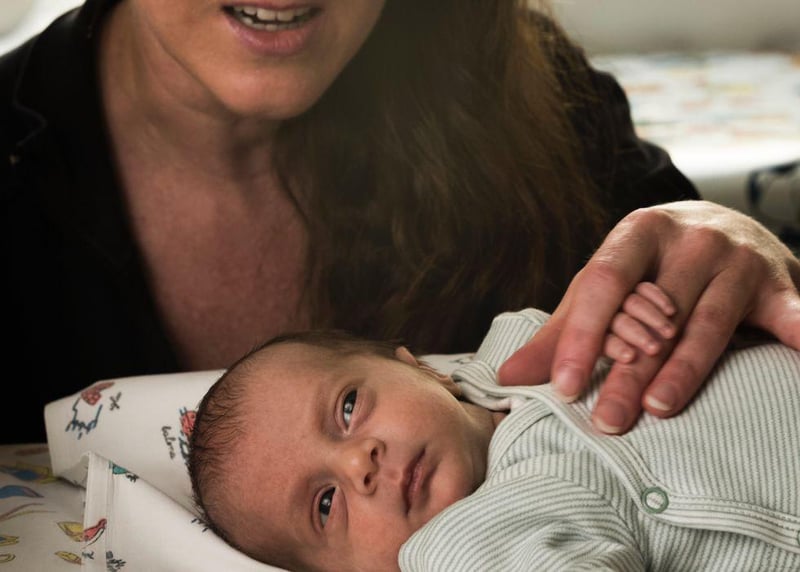Get Healthy!

- Cara Murez
- Posted August 30, 2021
Soothing Sound: Mom's Voice Eases Preemies' Pain
Mothers are known for drying their little ones' tears, sometimes with a hug, a song or a kiss on a scraped knee.
So, perhaps it isn't a surprise that new research shows the sounds of mom's voice provide comfort and even pain relief to the tiniest ones, premature babies.
Researchers from the University of Geneva in Switzerland found that not only did the sound of a mother talking or singing decrease an infant's pain as the preemie had necessary medical procedures while in intensive care, but it also increased their levels of oxytocin, the "feel good" attachment hormone.
"We demonstrate here the importance of bringing parents and child together, especially in the delicate context of intensive care," said study first author Manuela Filippa.
A baby born before 37 weeks is often separated from his or her parents immediately and placed in an incubator while undergoing necessary care that includes intubation, blood sampling and the use of a feeding tube. Some of the procedures can be painful, but using too many painkillers can be risky for development. Existing methods for soothing the baby include wrapping, restraint, sugar solutions and pacifiers.
For several years now, studies have shown that the presence of a mother or father has a real calming effect on the child, particularly through the emotional modulations of the voice, according to the researchers.
To test the impact of a mother's voice, the Swiss researchers, working with Parini Hospital in Italy and the University of Valle d'Aosta, followed 20 premature babies and asked the mother to be present during a daily blood test, which is done by extracting a few drops of blood from the infant's heel.
"We focused this study on the maternal voice, because in the first days of life it is more difficult for the father to be present, due to working conditions that do not always allow days off," Filippa said in a university news release.
The study was conducted in three phases over three days, allowing for comparison. A first injection was taken without the mother being present, a second with the mother talking to the baby and a third with the mother singing to the baby, all in random order. The mother started talking or singing five minutes before the injection, during the injection and after the procedure.
Using the Preterm Infant Pain Profile (PIPP), videos of the infants were judged by trained personnel without sound, so they would not be aware of whether the mother was speaking or singing when determining the baby's pain. Higher PIPP levels indicated more pain.
Researchers found that the PIPP level was 4.5 when the mother was absent. It was 3.8 when the mother sang and only 3 when the mother talked to the baby. Speaking made a bigger difference because a mom adapts her voice less to what she perceives in her baby when she sings because she is constrained by the melody of the song, researchers said.
The researchers also took a saliva sample from the baby before the mother spoke or sang and after the heel prick, finding that baby's oxytocin levels rose from 0.8 picograms per milliliter to 1.4 when the mother spoke.
"In terms of oxytocin, this is a significant increase," Filippa said.
The findings were published Aug. 27 in the journal Scientific Reports.
More information
The March of Dimes has more on preterm labor and birth.
SOURCE: University of Geneva, news release, Aug. 27, 2021






